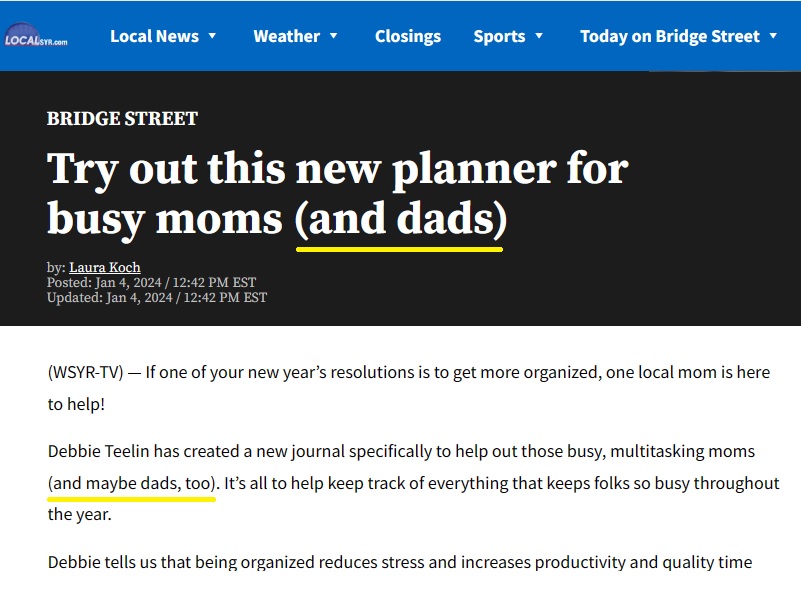When a child is on the way, a couple is overjoyed and over-the-moon about the huge change they’re about to experience.
But dads tend to feel left out.
When a couple becomes pregnant (more on that expression in a moment), it’s the woman who gains instant adulation by way of carrying the child. The wife goes shopping for new maternity clothes, often with sisters or girlfriends. She’ll likely host a baby shower with lots of guests, food and presents. She’ll physically start to change and receive extra consideration at doctor visits. She’ll get to request special foods not normally part of one’s daily diet (see cravings).
All of it is a wonderful, exciting time, and any husband is happy to see the added care and consideration his wife gets. The husband’s life will change, too, but the lack of attention can easily make a dad feel shut out.
The Boppy Company didn’t make things any easier with one of its recent blog posts.
In it, the writer states, “…it’s really not about you (male). You may have had something to do with conception, or were very involved with satisfying late night cravings, but the reality is, the person giving birth is going to be going through a lot and you’re not. In fact, you’ll likely be just sitting there most of the time.”
Any dad who’s gone through a pregnancy knows that’s not the case.
The change may not be physical, but dads go through a lot during a pregnancy. During delivery, he’s hardly just sitting there most of the time. And, he may have had a lot to do with conception.
Of course, there’s plenty a wife can to do make a dad feel like a part of the team: register together, attend appointments, plan the room, and feel the baby’s kick. All of this should go without saying. But the best idea is often overlooked.
So, what is that one, easy, surefire, free way to make dad feel appreciated and involved?
Let everyone know you’re both pregnant.
Sure, we all know that, technically, the child is growing inside the female. However, as stated, we also know that none of this is physically possible without a male – and that child is his, too.
So get used to saying it: couples become pregnant.
By telling the world, “We’re pregnant!” and “our baby is on the way,” it’s a telltale endorsement to friends and family that the baby is yours together, and dad-to-be is every bit an equivalent parent as mom-to-be. There’s no better way to make dad feel like a valued, equal part of the team. And yes, dad’s heart melts, too – he loves hearing togetherness words.
When women inevitably exclaim, “I’m pregnant” – it’s not that they intentionally meant to exclude husbands, or invoke any fatherly emotional detachment from the baby. It’s likely they just didn’t realize their word choice, or forgot, or omitted, or assumed, or overlooked.
Yet, that’s what happens to dads all the time.
So, make a pledge to use the proper pronoun during your pregnancy and beyond. Your relationship – as well as a genuine, committed, unified parenting approach – will be the better for it.

















